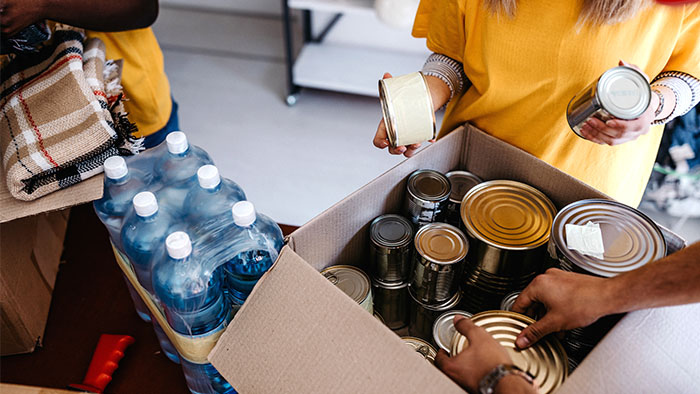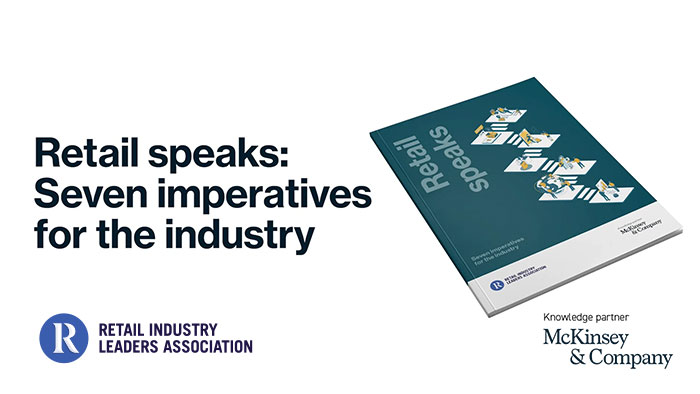Why Every Retailer Should Consider Product Donations
Donation Blog Series Part I - Good360
- 06/08/2020
As retailers slowly emerge from the unprecedented lockdown prompted by the COVID-19 pandemic, many are likely to face the unwelcome reality of a glut of unsold inventory. Businesses will need to figure out the optimum way to get rid of the excess merchandise and preferably avoid landfills.

One option every retailer should consider is product philanthropy. Nonprofit groups have long relied on in-kind donations from businesses for the goods they need to do more for their communities. But the coronavirus crisis is making product donations even more mission critical for charities, as the number of people in need has surged.
Since mid-March, more than 38 million Americans have filed for unemployment — an economic catastrophe only matched by the Great Depression. Food banks are being overrun and up to 7.5 million small businesses in America could shut down for good.
Nonprofits are feeling the pinch too. Funding sources are drying up. Mobilizing volunteers is more difficult with social distancing restrictions. Local sources of donations are harder to come by with many non-essential stores closed for business.
Meanwhile, nonprofit needs are only growing as they respond to the COVID-19 crisis. According to a survey some of Good360’s larger nonprofit partners, each of which serve dozens to hundreds of nonprofit agencies in their area, here is how charities are mobilizing to mitigate the effects of the pandemic:
- 47% are distributing supplies and providing services to hospitals, clinics, or other healthcare providers
- 82% are helping children impacted by school closures and economic hardship
- 94% are aiding vulnerable populations impacted by COVID-19
In other words, there’s hardly a nonprofit that isn’t being touched by the disastrous impact of the virus, either in their own operations or in how they’re helping communities in need.
Early in the pandemic, there was an urgent need for personal protective equipment (PPE) for healthcare workers. But as the public health crisis has turned into an economic disaster felt by millions across the country, nonprofit organizations are in need of all kinds of products, including household goods, clothing, personal care items, paper goods, and computer equipment to facilitate online learning.
By donating needed goods to qualified nonprofits and charities, retailers can not only help their communities but also bring value to their enterprises. Product donation is often less costly than other means of moving outdated or stale inventory, and prevent deep discounting, which can hurt current and future sales. Donations can also help retailers clear the way for products that may be more in demand considering changing consumer habits in response to the pandemic. Retailers can also take advantage of potentially significant tax benefits when making donations to charitable organizations.
At Good360, we have turned our attention almost exclusively to COVID-19 response, helping both companies and nonprofits to meet this crucial moment by placing a wide variety of donations including personal protective equipment (PPE), personal care items, clothing, basic household goods and much more. As a global leader in product philanthropy and purposeful giving, Good360 is one option for donating products to support Americans in need. We match donations from hundreds of companies with our network of more than 90,000 vetted and approved nonprofit partners. If you have product to donate and want to see if it meets the current needs of the Good360 nonprofit network, fill out the form here, and we’ll be in touch.
You can also hear from Good360 in the Retail Compliance Center’s (RCC) recent webinar on Retail Donation Programs.
RETAIL COMPLIANCE CENTER
The Retail Compliance Center (RCC) provides resources on environmental compliance and sustainability for all types and sizes of retailers. The RCC’s goal is to develop retail-specific resources, tools and innovative solutions to help companies cost-effectively improve their compliance and environmental performance. Visit the RCC for more information.Tags
-
Environmental Compliance
-
Retail Sustainability
-
Sustainability & Environment

